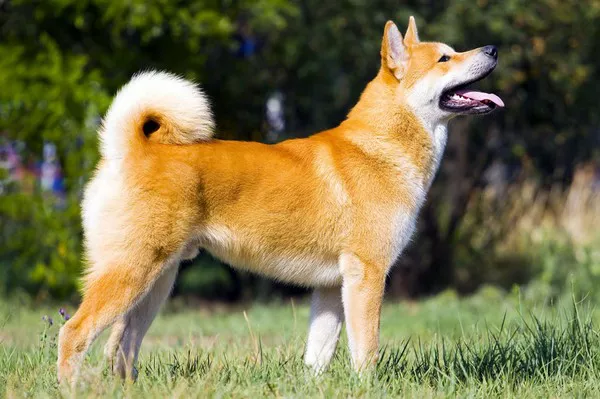Akitas are large, powerful dogs that are known for their loyalty and protective nature. They are also one of the heaviest dog breeds, with males typically weighing between 100 and 130 pounds and females weighing between 70 and 100 pounds.
What Factors Affect the Weight of an Akita?
There are a number of factors that can affect the weight of an Akita, including:
Gender: Males are typically larger and heavier than females.
Age: Akitas reach their full adult size at around 2 years old.
Diet: A healthy diet that is high in protein and low in fat is essential for maintaining a healthy weight in Akitas.
Exercise: Akitas need plenty of exercise to stay healthy and maintain a healthy weight.
How to Monitor Your Akita’s Weight
It is important to monitor your Akita’s weight regularly to make sure they are not overweight or underweight. You can do this by weighing your dog at least once a month. If you notice that your dog is gaining or losing weight, you should consult with your veterinarian to determine the cause and develop a plan to get your dog back to a healthy weight.
Overweight Akitas
Overweight Akitas are at increased risk for a number of health problems, including:
Joint problems: Obesity can put a lot of stress on the joints, which can lead to arthritis and other joint problems.
Heart disease: Obesity can increase the risk of heart disease in Akitas.
Diabetes: Obesity can increase the risk of diabetes in Akitas.
Breed-specific health problems: Akitas are prone to a number of breed-specific health problems, including hip dysplasia and elbow dysplasia. Obesity can worsen these conditions.
Underweight Akitas
Underweight Akitas are also at risk for health problems, including:
Immune system problems: Underweight Akitas may have a weakened immune system, which can make them more susceptible to infections.
Growth problems: Underweight Akitas may not grow to their full adult size.
Behavior problems: Underweight Akitas may be more likely to exhibit behavior problems, such as aggression or anxiety.
How to Help Your Akita Lose Weight
If your Akita is overweight, there are a number of things you can do to help them lose weight. These include:
Increase exercise: Akitas need at least 30 minutes of exercise per day. This can be done through walks, runs, or playing fetch.
Change diet: You should consult with your veterinarian to develop a diet plan for your Akita. This plan should be high in protein and low in fat.
Be patient: It takes time to lose weight safely. Do not try to force your Akita to lose weight too quickly.
Conclusion
Akitas are large, powerful dogs that require a lot of care and attention. One of the most important things you can do for your Akita is to monitor their weight and make sure they are not overweight or underweight. By following the tips in this article, you can help your Akita live a long and healthy life.
Additional Information
The American Kennel Club (AKC) is the largest purebred dog registry in the United States. The AKC has a breed standard for Akitas, which outlines the physical characteristics and temperament of the breed.
The National Akita Club (NAC) is a non-profit organization dedicated to the preservation and promotion of the Akita breed. The NAC offers a variety of resources for Akitas owners, including educational materials, training programs, and health information.
The Akita Rescue Network (ARN) is a non-profit organization that helps find homes for abandoned and surrendered Akitas. The ARN also offers a variety of services to Akitas owners, including adoption counseling, training assistance, and financial assistance.


